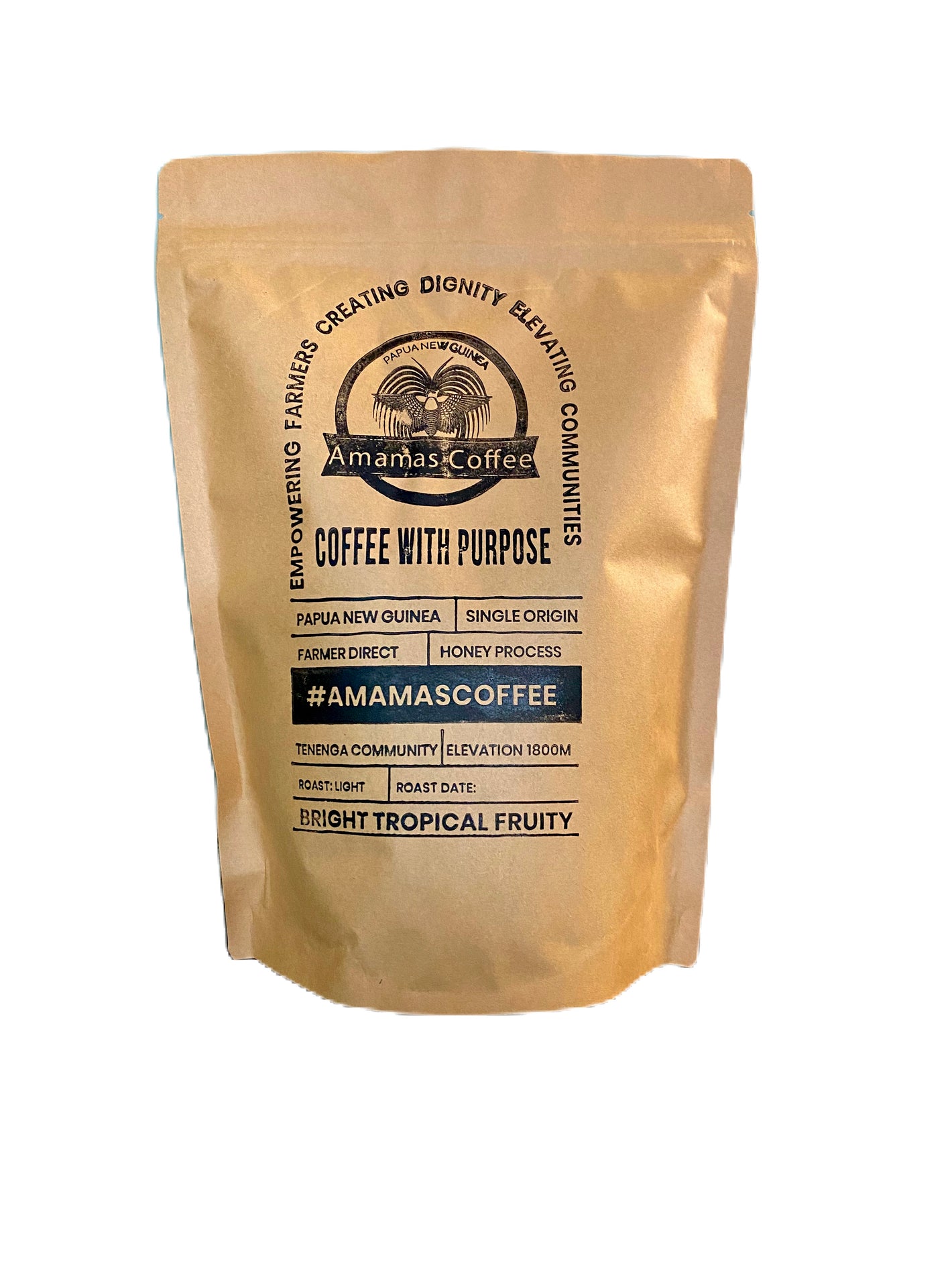About our Honey Process
-
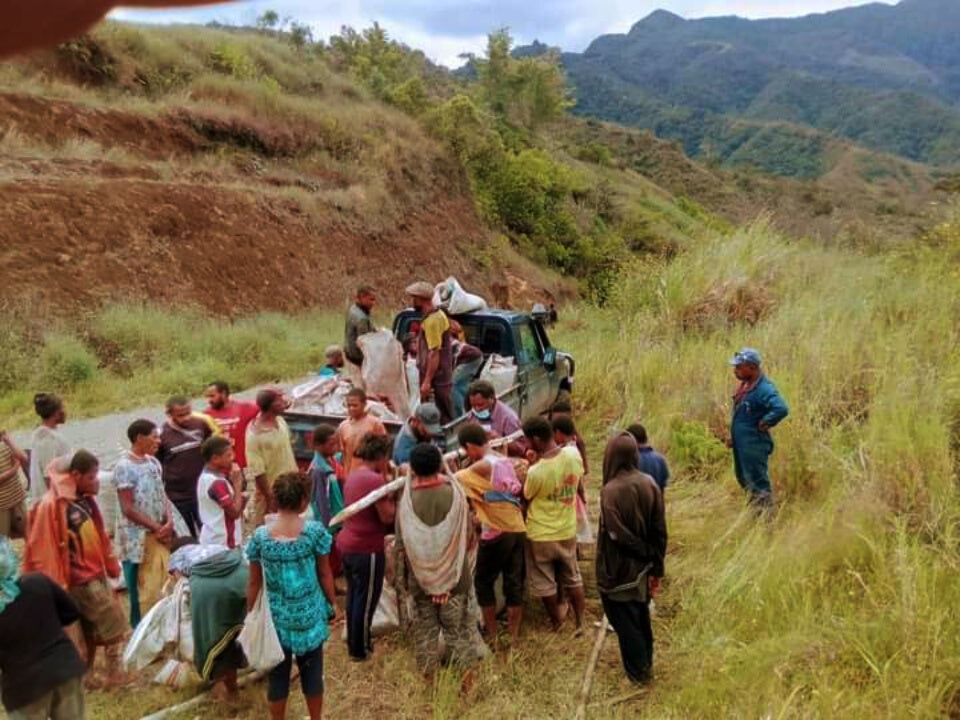
Pick up
The process begins with the team from Jiwaka Coffee Ltd. traveling into the mountains to pick up from each of the communities participating.
-
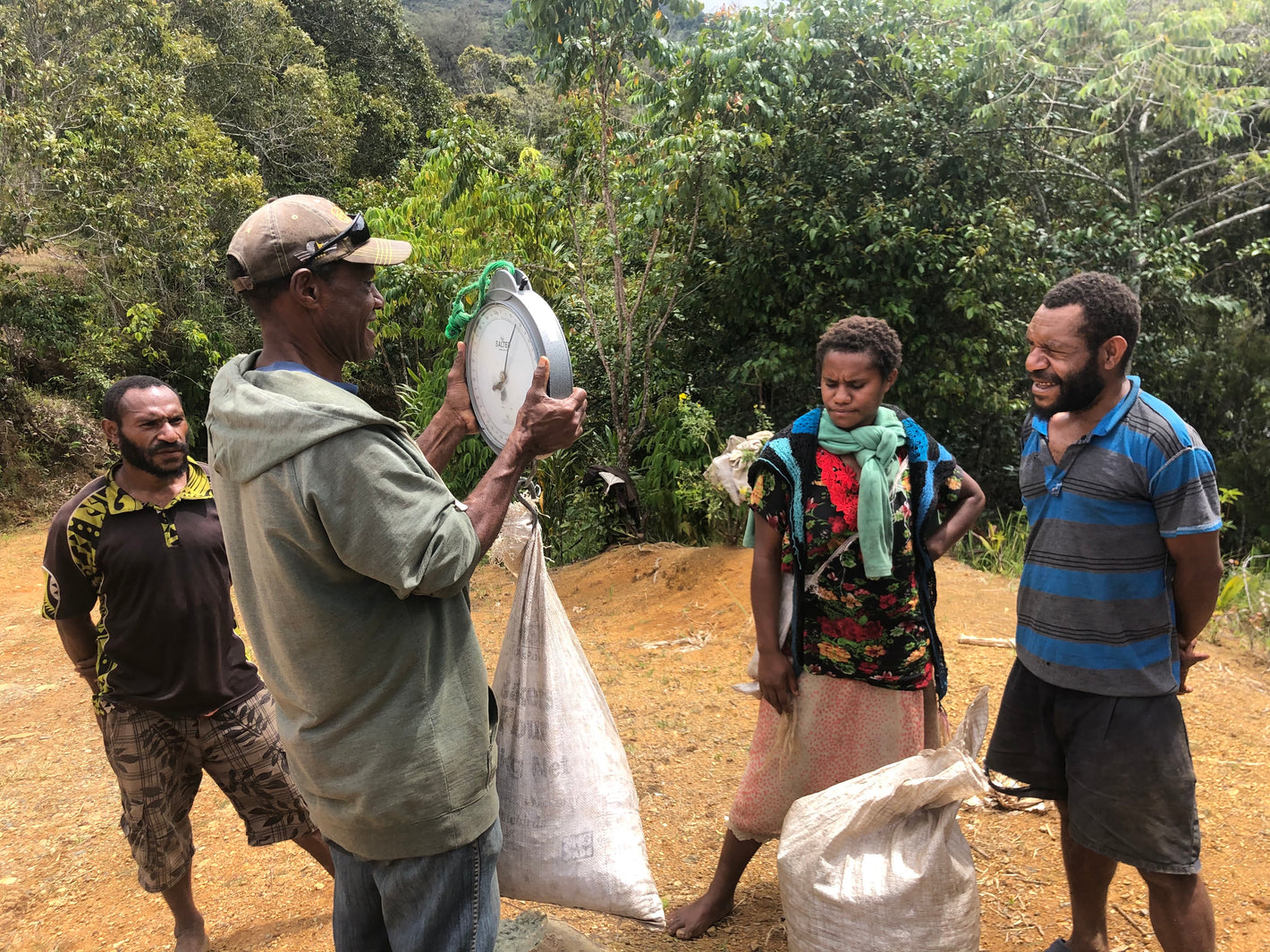
Weigh and Pay
Smallholders have been trained to selectively handpick only ripe cherry which are accepted, weighed and our premium price paid at pick-up. The race is on to get the cherries back to the mill to begin the process within a 12-hour window for maximum freshness.
-
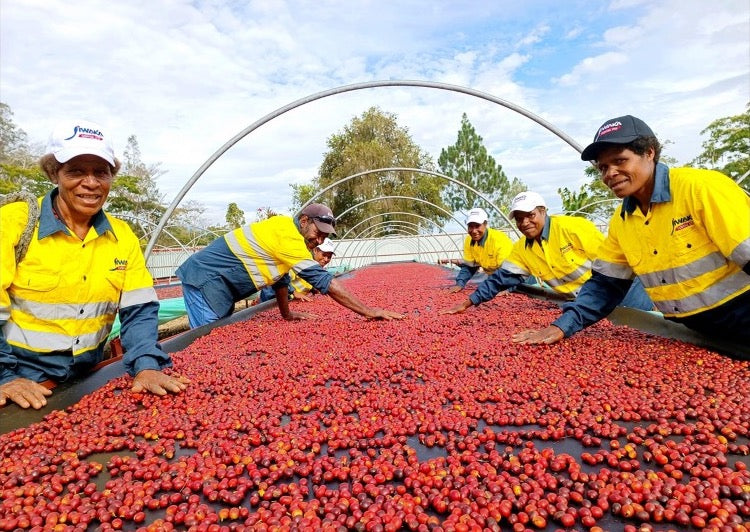
Hand Sorting
In order to work within a 12-hour window from picking to milling, the cherries are immediately spread and meticulously hand sorted and floated in water to ensure only dense, dark red ripe cherries move to the next stage of the process.
-
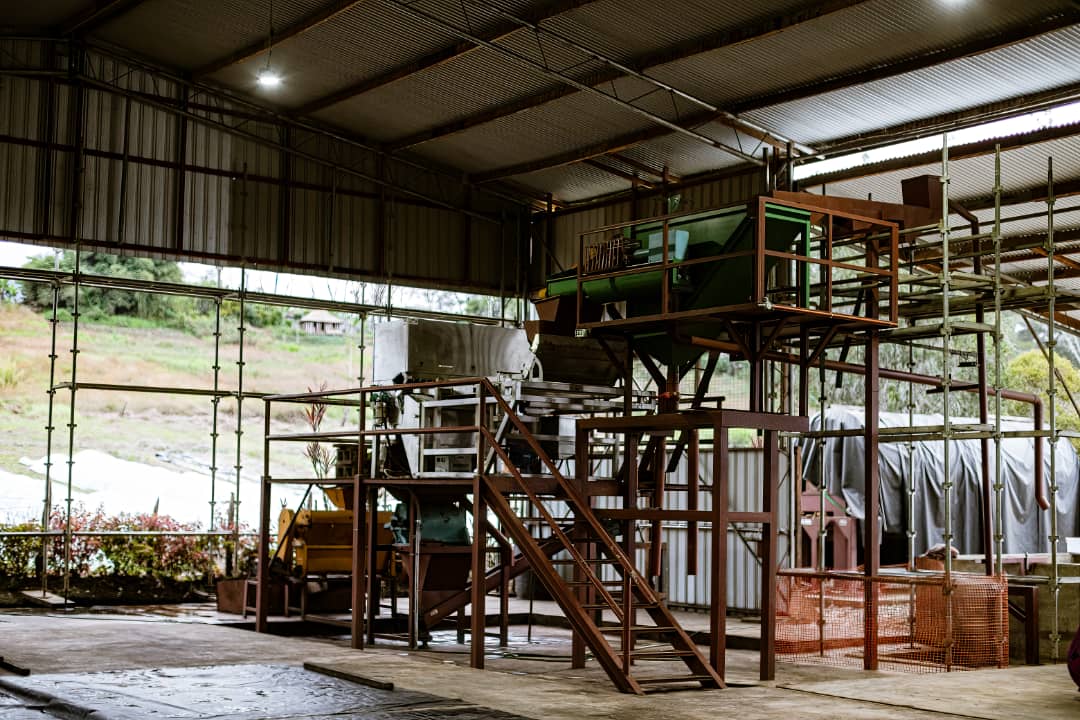
Wet Milling
After the hand sorting intake process, cherries are pulped to remove most of the skin and some of the juicy mucilage. Some of the sweet cherry mucilage is left on the beans to produced the special favour profile known as honey process. Our eco wetmill uses a waterless process so there is no polluted water returned to the ground or streams as with other processes (called washed coffee).
-
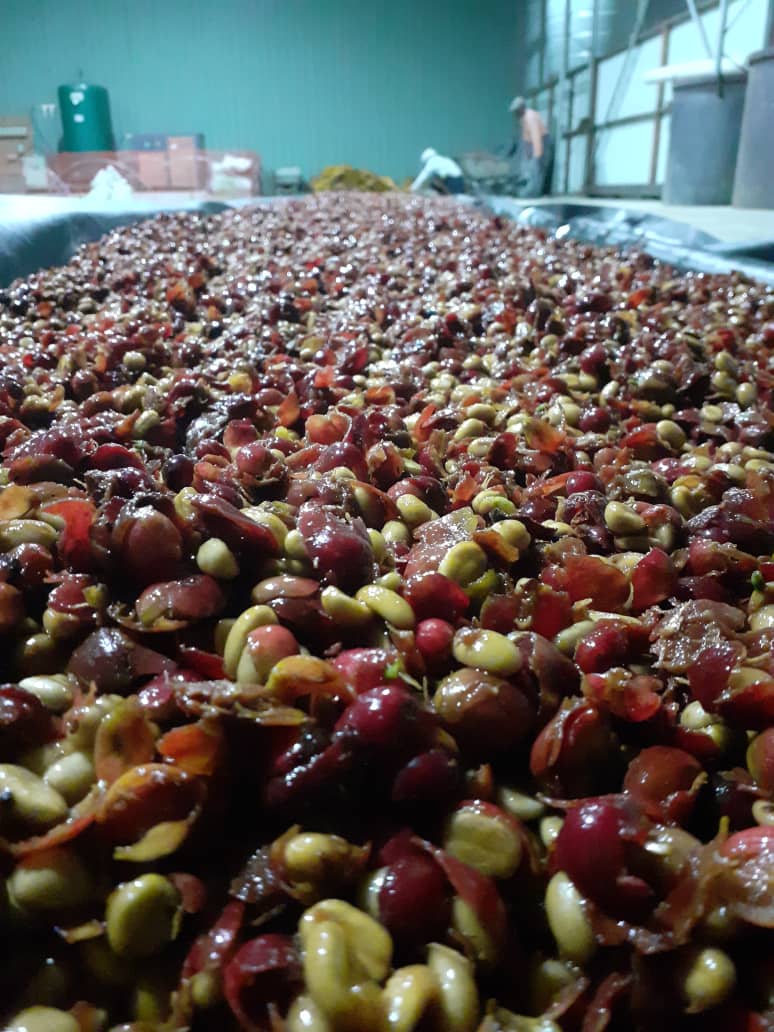
Fermentation
Then aerobic fermentation takes place for 16 hours before being moved for sun drying
-
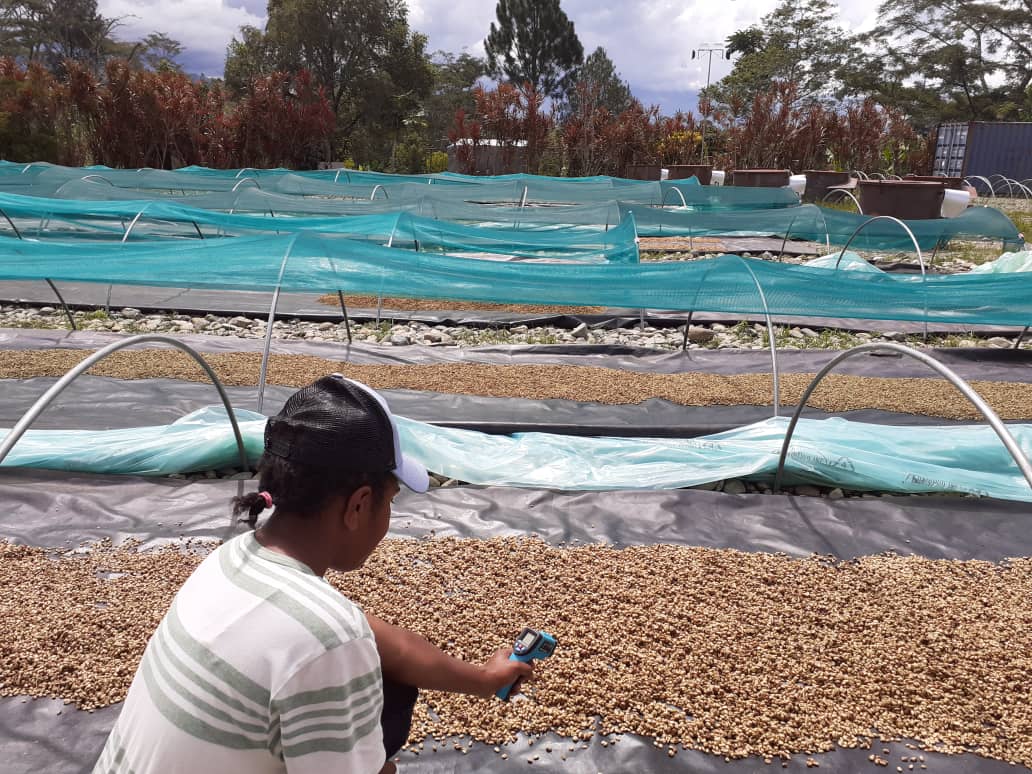
Drying
After fermentation the coffee beans, called parchment at this stage because of the light skin over them, are laid to sun dry on coffee beds. They are raked constantly to maintain slow consistent drying and make sure temperature stays less than 40 degrees celsius. Beds are covered each night or if rain threatens, with this process repeated for 14 days until dried to an approximate 11% moisture content.
-
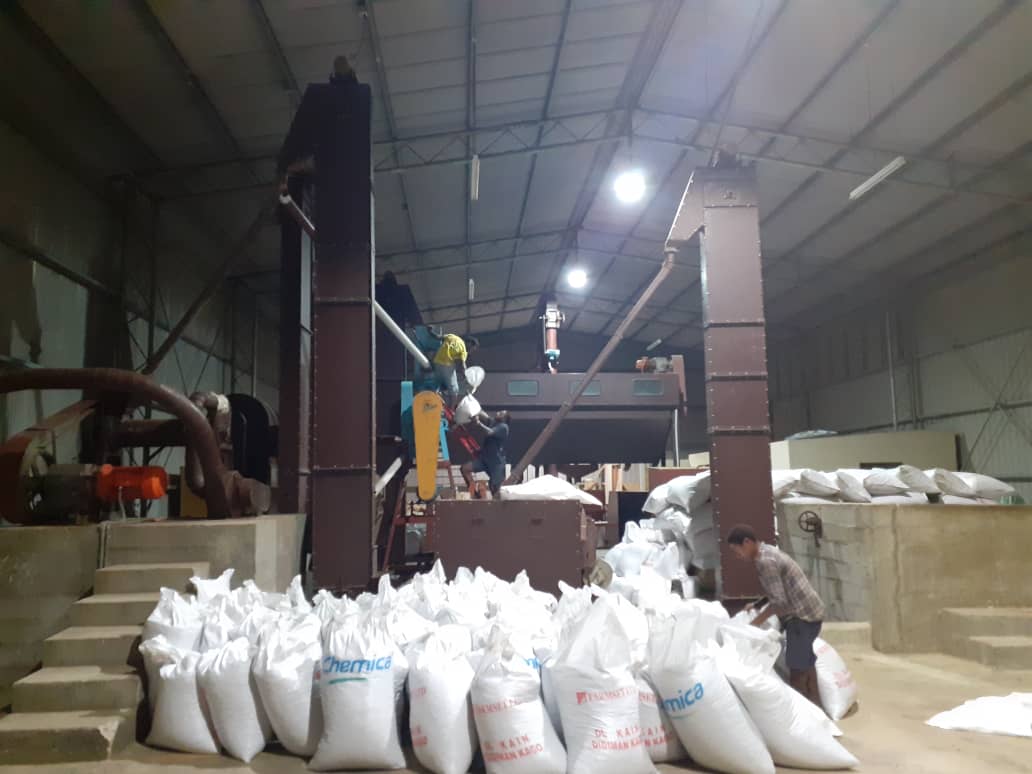
Dry Milling
After the parchment beans have been sun dried, they go through a dry mill to remove the final parchment layer. They are now green beans.
-
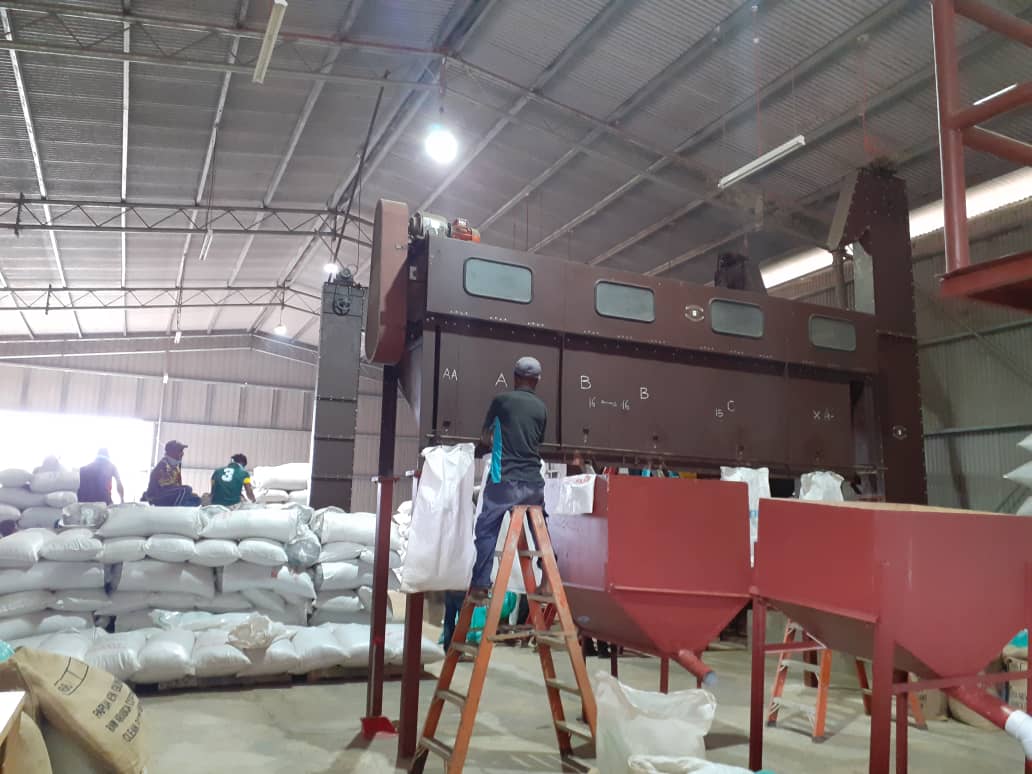
Screen size sorting
At this stage the green beans are moved from the dry mill to the screen size sorter to sort the larger beans from the smaller.
-
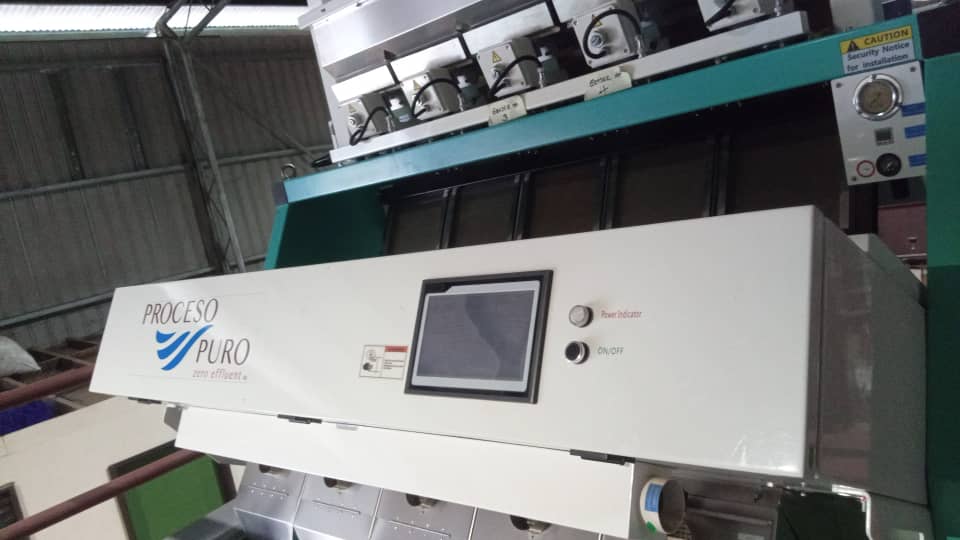
Colour Sorting
Once the green beans have been sorted into their screen sizes and separated, they are put through the colour sorter to sort out any defects.
-
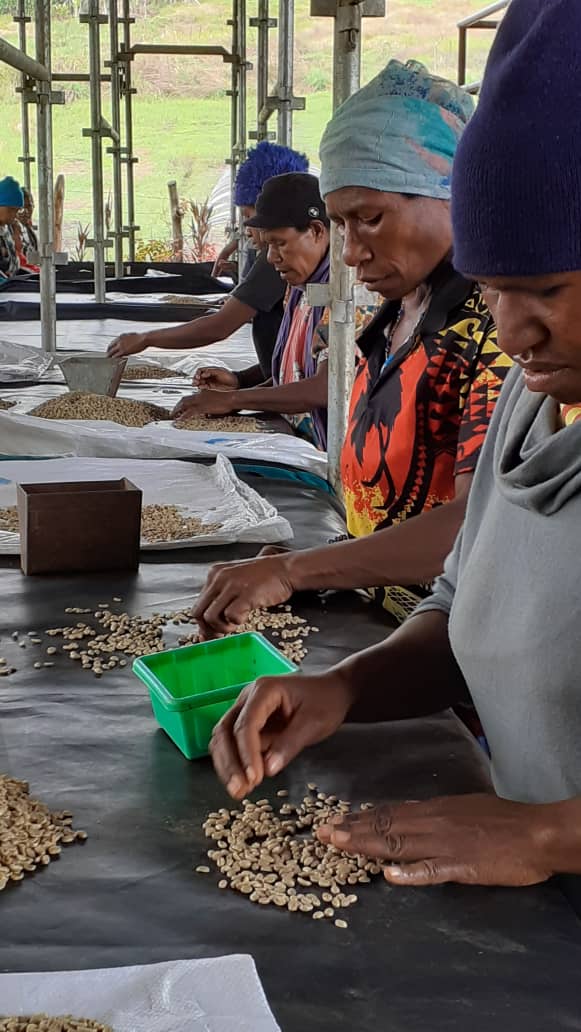
Final hand sorting
After beans have been sorted by screen size and run through the colour sorter there is a final hand sorting process to ensure visual inspection for any defects that could have been missed.
-
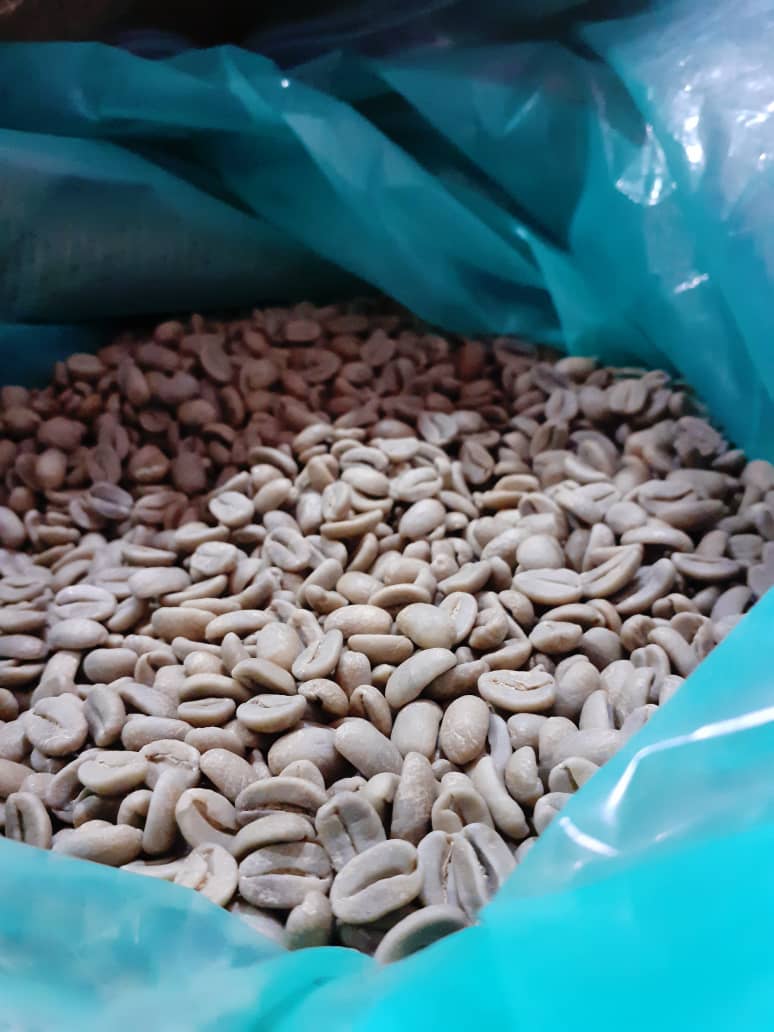
Bagging in Grainpro bags
The final step is weighing the green beans into 60kg Grainpro bags which seal in the freshness. These are packed into the hand stenciled jute bags ready for shipping.












